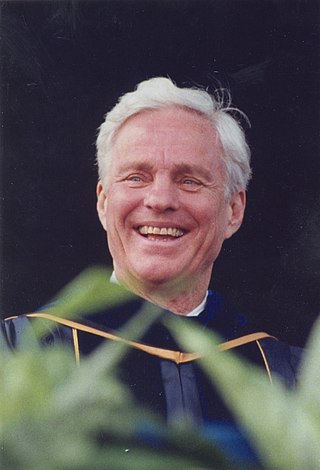
Richard Chatham Atkinson is an American professor of psychology and cognitive science and an academic administrator. He is president emeritus of the University of California system, former chancellor of the University of California, San Diego, and former director of the National Science Foundation.

Mitchel Resnick is LEGO Papert Professor of Learning Research, Director of the Okawa Center, and Director of the Lifelong Kindergarten group at the Massachusetts Institute of Technology (MIT) Media Lab. As of 2019, Resnick serves as head of the Media Arts and Sciences academic program, which grants master's degrees and Ph.D.s at the MIT Media Lab.
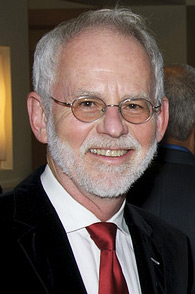
Roy D. Pea is David Jacks Professor of Learning Sciences and Education at the Stanford Graduate School of Education. He has extensively published works in the field of the Learning Sciences and on learning technology design and made significant contributions since 1981 to the understanding of how people learn with technology.
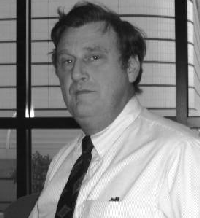
Lawrence L. Larmore is an American mathematician and theoretical computer scientist. Since 1994 he has been a professor of computer science at the University of Nevada, Las Vegas (UNLV). Larmore developed the package-merge algorithm for the length-limited Huffman coding problem, as well as an algorithm for optimizing paragraph breaking in linear time. He is perhaps best known for his work with competitive analysis of online algorithms, particularly for the k-server problem. His contributions, with his co-author Marek Chrobak, led to the application of T-theory to the server problem.
David Theo Goldberg is a South African professor working in the United States, known for his work in critical race theory, the digital humanities, and the state of the university.
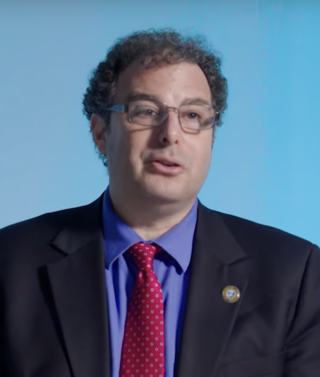
Michael Lederman Littman is a computer scientist, researcher, educator, and author. His research interests focus on reinforcement learning. He is currently a University Professor of Computer Science at Brown University, where he has taught since 2012.
The Institute for Research on Learning (IRL) in Palo Alto, California was co-founded by John Seely Brown, then chief research scientist at the Palo Alto Research Center, and James Greeno, Professor of Education at Stanford University, with the support of David Kearns, CEO of Xerox Corporation in 1986 through a grant from the Xerox Foundation. It operated from 1986 to 2000 as an independent cross-disciplinary think tank with a mission to study learning in all its forms and sites.

Peter A. Freeman is the founding dean of Georgia Tech's College of Computing, a position he held from 1990 to 2002. Freeman was assistant director of the National Science Foundation from 2002 to 2007.
Ricky J. Sethi is an Assistant Professor of Computer Science at Fitchburg State University and the Director of Research for The Madsci Network. He was appointed as a National Science Foundation (NSF) Computing Innovation Fellow by the Computing Community Consortium and the Computing Research Association. He has contributed significantly in the fields of machine learning, computer vision, social computing, and science education/eLearning.

Constance Steinkuehler (Squire) is an American professor of Informatics at the University of California–Irvine. She previously taught at the University of Wisconsin-Madison before taking public service leave, from 2011-2012, to work as a Senior Policy Analyst in the Office of Science and Technology Policy (OSTP) at the White House Executive Office, where she advised on policy matters about video games and learning.
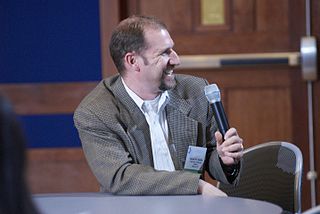
David Williamson Shaffer is the Vilas Distinguished Achievement Professor of Learning Science at the University of Wisconsin–Madison in the department of Educational Psychology, the Obel Foundation Professor of Learning Analytics at Aalborg University in Copenhagen, a Data Philosopher at the Wisconsin Center for Education Research, and Principal of EFGames, LLC.
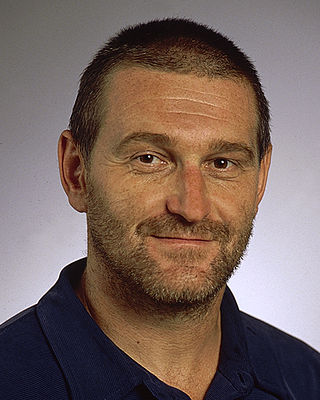
Pavel Arkadevich Pevzner is the Ronald R. Taylor Professor of Computer Science and director of the NIH Center for Computational Mass Spectrometry at University of California, San Diego. He serves on the editorial board of PLoS Computational Biology and he is a member of the Genome Institute of Singapore scientific advisory board.

Marcia C. Linn is a professor of development and cognition. Linn, specializes in education in mathematics, science, and technology in the Graduate School of Education at the University of California, Berkeley. Since 1970, Linn has made contributions to the understanding of the use of computers and technology to support learning and teaching in mathematics and science.
Chung-Chieh Jay Kuo is a Taiwanese electrical engineer and the director of the Multimedia Communications Lab as well as distinguished professor of electrical engineering and computer science at the University of Southern California. He is a specialist in multimedia signal processing, video coding, video quality assessment, machine learning and wireless communication.
Games and learning is a field of education research that studies what is learned by playing video games, and how the design principles, data and communities of video game play can be used to develop new learning environments. Video games create new social and cultural worlds – worlds that help people learn by integrating thinking, social interaction, and technology, all in service of doing things they care about. Computers and other technologies have already changed the way students learn. Integrating games into education has the potential to create new and more powerful ways to learn in schools, communities and workplaces. Games and learning researchers study how the social and collaborative aspects of video gameplay can create new kinds of learning communities. Researchers also study how the data generated by gameplay can be used to design the next generation of learning assessments.
Robert B. Schnabel is an American computer scientist. He was executive director and CEO of the Association for Computing Machinery (ACM) from November 1, 2015 to 2017. He is now professor and external chair of computer science at University of Colorado Boulder.
Noah David Finkelstein is a professor of physics at the University of Colorado Boulder. He is a founding co-director of the Colorado Center for STEM Learning, a President’s Teaching Scholar, and the inaugural Timmerhaus Teaching Ambassador. His research focuses on physics education and on developing models of context, the scope of which involves students, departments, and institutional scales of transformation. In 2010, Finkelstein testified to the United States House Committee on Science, Space and Technology on how to strengthen undergraduate and postgraduate STEM education.
Michelene (Micki) T. H. Chi is a cognitive and learning scientist known for her work on the development of expertise, benefits of self-explanations, and active learning in the classroom. Chi is the Regents Professor, Dorothy Bray Endowed Professor of Science and Teaching at Arizona State University, where she directs the Learning and Cognition Lab.
Kathleen R. Johnson is an American member of the Grand Traverse Band of Ottawa and Chippewa Indians who is a geologist and paleoclimatologist. Her research focuses on reconstructing past climate change with speleothems, on active cave monitoring to understand the interaction of climate with speleotherm geochemistry, and analyzes climate and paleoclimate data to investigate natural climate variability. She earned a PhD from the University of California Berkeley in 2004 and is an associate professor at the University of California Irvine.
Qing Nie is a mathematician and systems biology researcher. He is a Chancellor's Professor of Mathematics, Developmental and Cell Biology, and Biomedical Engineering at University of California, Irvine. He is also the director of the Center for Mathematical and Computational Biology and the NSF-Simons Center for Multiscale Cell Fate Research at the University.










